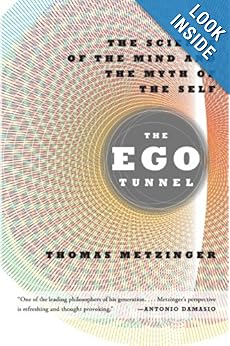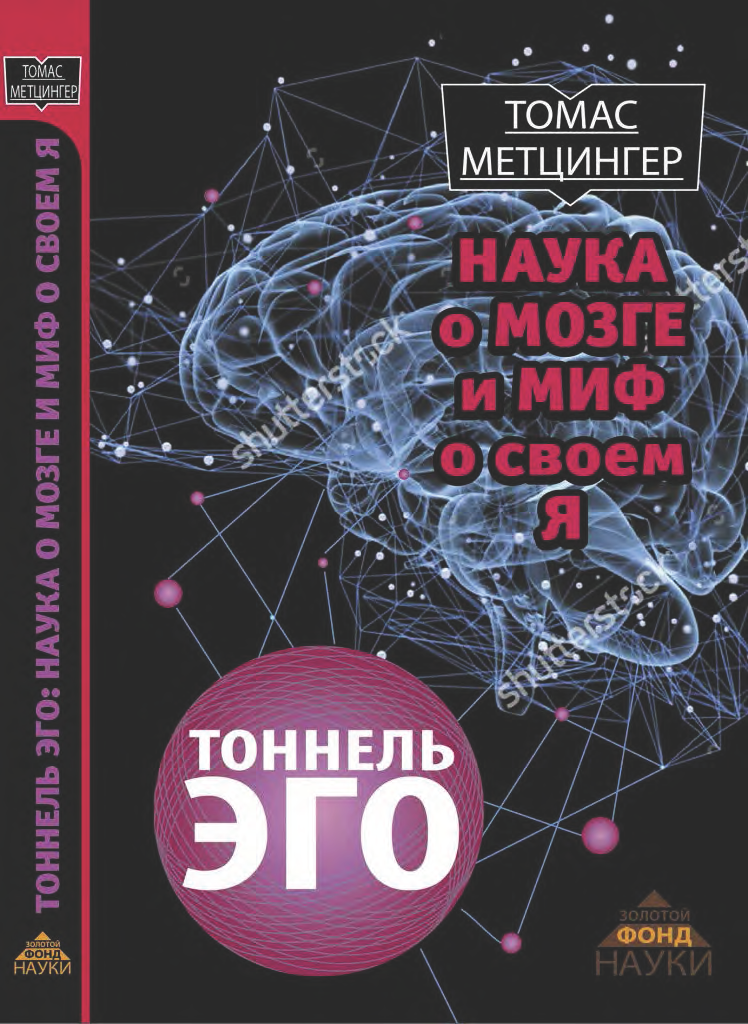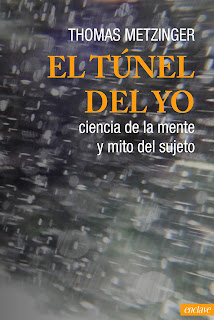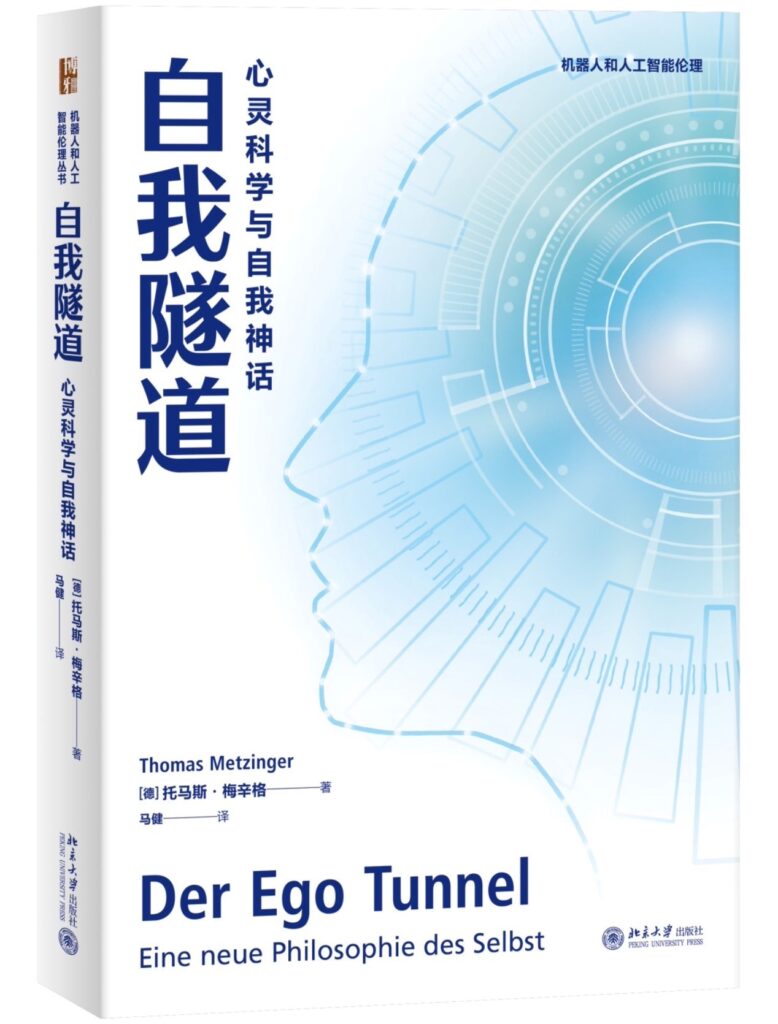- Director: MPE-Research Network
- Adjunct Fellow: Frankfurt Institute for Advanced Studies
- President: Barbara-Wengeler-Stiftung
- Founder & former director: MIND Group
Research focus
- Analytical philosophy of mind
- Philosophy of cognitive science
- Philosophical problems of neuroscience
- Applied ethics (especially for neurotechnology, AI, and virtual reality; plus conceptual connections between ethics, anthropology, and philosophy of mind)
Contact
E-mail: <lastname> @ uni-mainz.de
Voicemail: +49 (0) 6131/39-23279
Special Issue, all completely open access:
Metzinger, T. & Millière, R. (2020b). Radical Disruptions of Self-Consciousness. Philosophy and the Mind Sciences, 1(I).
In a new journal, all completely open access: Philosophy and the Mind Sciences.
Edited by Sascha Fink, Wanja Wiese und Jennifer Windt.
The Festschrift for my 60th birthday: 55 authors, 28 contributions, all completely open access.
Edited by Sascha Fink, Wanja Wiese und Jennifer Windt.
Recent work on mind wandering: → Spontaneous and task-unrelated thought
(1) Public Understanding of Science (non-academic)
Three non-academic essays and an English newspaper article for the listeners of Sam Harris, Tony Sobdrado, and Michael Taft:
- Metzinger, T. (2018). Are you sleepwalking now? AEON, January 2018.
- Metzinger, T. (2013c). Spirituality and Intellectual Honesty. Mainz: Self-published. ISBN: 978‐3‐00‐041539‐5 | ISBN-A / doi: 10.978.300/0415395.
A recent summary talk in California is here.
Arabic translation: ةتوماس ميتزنجر - الروحانية والأمانة الفكر
Georgian translation: სულიერება და ინტელექტუალური კეთილსინდისიერება - Metzinger, T. (2017m). Benevolent Artificial Anti-Natalism (BAAN). EDGE Essay [8.7.17] Auf Deutsch in der NZZ vom 2. Dezember 2017 [PDF]
- Metzinger, T. (2017n). Silicon Valley is selling an ancient dream of immortality. Financial Times, 18th of August 2017.
- A longer chat with Karl Friston (December 2023).
- With Matthew Geleta on the Paradigm Podcast (October 2023).
- Tony Sobrado Podcast (27 September 2017) What is Consciousness?
- Sam Harris Podcast #96 (10 September 2017): The Nature of Consciousness
(2017) Is God an evil teenage hacker? (Conversation with David Chalmers) More small stuff for Edge. - Interview with Sue Blackmore at the Swedish AXESS Foundation (2015; 30 minutes)
- The Perfect Human Being
Some short interview clips from Dutch TV (2015; 13 minutes)....
... and another interview at 3:AM MAGAZINE that really is a bit too long - isn't it? - And some fun stuff in The New Yorker...
(2) Some English material on the ethics of Artificial Intelligence and Virtual Reality
- (2021a). Artificial Suffering: An Argument for a Global Moratorium on Synthetic Phenomenology. Journal of Artificial Intelligence and Consciousness, 8 (1), 1-24.
- Three publications by the High-Level Expert Group on Artifical Intelligence
- [122] (2020g; with Mark Coeckelbergh). Europe needs more guts when it comes to AI ethics. Tagesspiegel BACKGROUND, 16. April 2020.
- [123] (2020h; with Mark Coeckelbergh). Warum das EU-Weißbuch zur Künstlichen Intelligenz enttäuscht (English AND German). Der Tagesspiegel, 16. April 2020.
- Paradise or Robocalypse? Documentary on the ethics of AI by Uri Schneider, August 2019.
Spanish version | Deutsche Version - (2019h). Ethics Washing made in Europe. Tagesspiegel, April 8, 2019.
- (2019i). IA : « l’éthique-washing », une invention européenne. Meta-media | La révolution de l'information, 15. April 2019.
- (2018f). Why is Virtual Reality interesting for Philosophers? Front. Robot. AI (Frontiers in Robotics and AI) 5: 292.
- Metzinger, T. (2018a).Towards a Global Artificial Intelligence Charter. In European Parliament (ed.), Should we fear artificial intelligence? PE 614.547
- Madary, M. & Metzinger, T. (2016g). Real Virtuality: A Code of Ethical Conduct. Recommendations for Good Scientific Practice and the Consumers of VR-Technology. Frontiers in Robotics and AI, 3 (3). doi: 10.3389/frobt.2016.00003 See also: Press release | New Scientist | EU DAE Blog
- Metzinger, T. (2013c). Two principles for robot ethics. In E. Hilgendorf & J.-P. Günther (Hrsg.), Robotik und Gesetzgebung. Baden-Baden: Nomos. S. 263-302.
- Mannino, A., Althaus, D., Erhardt, J., Gloor, L., Hutter, A. and Metzinger, T. (2015). Artificial Intelligence: Opportunities and Risks. Policy paper by the Effective Altruism Foundation 2: 1-16.
→ More policy papers by the German Effective Altruism Foundation are here.
- Metzinger, T. (2016c). Suffering. In Kurt Almqvist & Anders Haag (eds.), The Return of Consciousness. Stockholm: Axel and Margaret Ax:son Johnson Foundation.
(3) Peer-reviewed & Open Access (Academic)
- (2021f; with Alex Gamma). The Minimal Phenomenal Experience questionnaire (MPE-92M): Towards a phenomenological profile of “pure awareness” experiences in meditators. PLOS ONE 16(7): e0253694.
- (2020e). Minimal phenomenal experience: Meditation, tonic alertness, and the
phenomenology of “pure” consciousness. Philosophy and the Mind Sciences, 1(I), 7.
https://doi.org/10.33735/phimisci.2020.I.46 - (2020d). Self-modeling epistemic spaces and the contraction principle. Cognitive Neuropsychology
https://doi.org/10.1080/02643294.2020.1729110 - (2019). Dretske on Transparency. In M. Frauchiger [ed.], @@@ - Themes from Dretske. (Lauener Library of Analytical Philosophy, ed. by W. K. Essler, D. Føllesdal, and M. Frauchiger, vol. 6) Berlin/Boston: De Gruyter.
- (2018g). Seli, Paul; Kane, Michael J.; Metzinger, Thomas; Smallwood, Jonathan; Schacter, Daniel L.; Maillet, David et al.: The Family-Resemblances Framework for Mind-Wandering Remains Well Clad. Trends in Cognitive Sciences ///. DOI: 10.1016/j.tics.2018.07.007.
- (2017e). The Problem of Mental Action: Predictive Control without Sensory Sheets. In T. Metzinger and W. Wiese (eds.), Philosophy and Predictive Processing. Frankfurt am Main: MIND Group.
- (2017g; co-authored with Wanja Wiese). Vanilla PP for Philosophers: A Primer on Predictive Processing. In T. Metzinger and W. Wiese (eds.), Philosophy and Predictive Processing. Frankfurt am Main: MIND Group.
- Penultimate draft: (2017c). Why is mind wandering interesting for philosophers? In Kieran C.R. Fox & Kalina Christoff [eds.] (2017), The Oxford Handbook of Spontaneous Thought: Mind-wandering, Creativity, Dreaming, and Clinical Conditions. New York: Oxford University Press.
- Frith, C. & Metzinger, T. (2016d) .What’s the Use of Consciousness? How the Stab of Conscience Made Us Really Conscious. In Andreas K. Engel, Karl J. Friston & Danica Kagic (eds), The Pragmatic Turn: Toward Action-Oriented Views in Cognitive Science. Cambridge, MA: MIT Press. Chapter references | See also: Ernst Strüngmann Forum
- Madary, M. & Metzinger, T. (2016g). Real Virtuality: A Code of Ethical Conduct. Recommendations for Good Scientific Practice and the Consumers of VR-Technology. Frontiers in Robotics and AI, 3 (3). doi: 10.3389/frobt.2016.00003
See also: Press release | New Scientist | EU DAE Blog - Metzinger, T. (2016c). Suffering. In Kurt Almqvist & Anders Haag (eds.), The Return of Consciousness. Stockholm: Axel and Margaret Ax:son Johnson Foundation.
- Metzinger, T. (2015t). M-Autonomy. Journal of Consciousness Studies, 22 (11-12), 270-302.
- Metzinger, T. & Windt, J.M. (2015a). Open MIND. Frankfurt am Main: MIND Group. ISBN: 978-3-95857-102-0.
- Metzinger, T. (2015b). About this collection. In 2015a.
- Metzinger, T. & Windt, J.M. (2015c). What does it mean to have an open mind? In 2015a.
- Metzinger T. (2013a). The myth of cognitive agency: subpersonal thinking as a cyclically recurring loss of mental autonomy. Front. Psychol. 4:931. doi: 10.3389/fpsyg.2013.00931
- Metzinger, T. (2013b). Why are dreams interesting for philosophers? The example of minimal phenomenal selfhood, plus an agenda for future research. Front. Psychol. 4:746. doi:10.3389/fpsyg.2013.00746
- Metzinger, T. (2013c). Two principles for robot ethics. In E. Hilgendorf & J.-P. Günther (Hrsg.), Robotik und Gesetzgebung. Baden-Baden: Nomos. S. 263-302.
(4) Peer-reviewed & Print (Academic)
- Solomon, R., Noel, J.-P., Łukowska, M., Faivre, N., Metzinger, T., Serino, A. & Blanke, O. (2017). Unconscious integration of multisensory bodily inputs in the peripersonal space shapes bodily self-consciousness. Cognition, 166 (September 2017), 174-183.
- Pliushch, I. & Metzinger T. (2015o). Self-deception and the Dolphin Model of Cognition. In Rocco J. Gennaro (Hrsg.), Disturbed Consciousness. New Essays on Psychopathology and Theories of Consciousness. Cambridge, MA: MIT Press. Pp. 167-208.
- Metzinger, T. (2014e). How does the brain encode epistemic reliability? Perceptual presence, phenomenal transparency, and counterfactual richness. Cognitive Neuroscience: doi: 10.1080/17588928.2014.905519
- Metzinger, T. (2014f). What is the specific significance of dream research for philosophy of mind? In N. Tranquillo (ed.), Dream Consciousness. Allan Hobson’s New Approach to the Brain and Its Mind. Vienna Circle Institute Library 3, (Chapter 22), 161-166. Cham: Springer. doi: 10.1007/978-3-319-07296-8_22
- Metzinger, T. (2014h). First-order embodiment, second-order embodiment, third-order embodiment: From spatiotemporal self-location to minimal phenomenal selfhood (Chapter 26). In Lawrence Shapiro (ed.), The Routledge Handbook of Embodied Cognition. London: Routledge. Pp. 272-286.
News
- The 2024 Computational Phenomenology of Pure Awareness Prize prize has been announced.
- The Chinese Ego Tunnel is out.
- December 2022: I have been elected into the German National Academy of Sciences.
- My 2021 Samuel Pufendorf-lectures in Lund (Sweden) are online.
- New open-access journal online: Philosophy and the Mind Sciences
- The MPE-Research Network is beginning its work.
- I have been awarded a Senior-Forschungsprofessur (2019-2021).
- The Spanish Ego Tunnel is out.
- I have accepted a nomination into the High Level Group on Artificial Intelligence of the European Commission (2018-2020).
→ Communication from the Commission of The European Parliament | European AI Alliance - The Polish Ego Tunnel is out.
- There is a free Arabic translation of "Spirituality and Intellectual Honesty":
توماس ميتزنجر - الروحانية والأمانة الفكرية - I received the inaugural Best Paper Prize of the Society for Mind-Matter Research for the period of 2003-2017 in their official journal Mind and Matter::
Metzinger, T. (2005c). Out-of-body experiences as the origin of the concept of a "soul". Mind and Matter, 3(1), 57-84. - The Russian Ego Tunnel is out:
Metzinger, T. (2017a). Наука о мозге и миф о своем Я. Тоннель Эго. Moskau: Издательство АСТ. - You can now buy Open MIND as a book.
- The Japanese Ego Tunnel is out:
Metzinger, T. (2015j). エゴ・トンネル――心の科学と「わたし」という謎 単行本. Tokyo: Iwanami Shoten. - The Romanian Ego Tunnel is out:
Metzinger, T. (2015n). Tunelul Eului. Ştiinţa Minţii şi Mitul Sinelui. Bukarest: Humanitas. - Metzinger, T. (2015e). Coscienza e Fenomenologia del Sé. Torino: Rosenberg & Sellier.
- From 2014 to 2019 I will work as a Fellow in the Gutenberg Research College.
//





